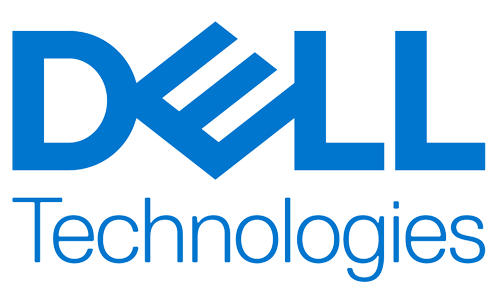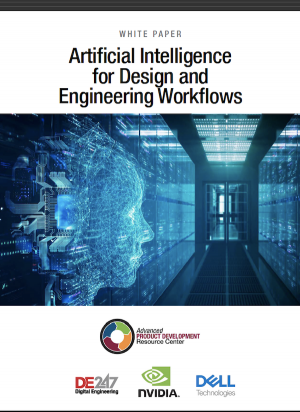The AI Workstation
At Dell Technologies World, Dell and NVIDIA outline the future of PCs as more companies adopt on-prem AI.

As part of its Dell AI Factory with NVIDIA solution, Dell is offering Accelerator Services to help companies more effectively deploy AI applications with its line of AI-ready workstations.
Engineering Resource Center News
Engineering Resource Center Resources


Dell

June 13, 2024
A lot of attention has been focused on new solutions to enable artificial intelligence (AI) solutions in the data center and in the cloud. Where does that leave the workstation? At Dell Technologies World 2024, held in Las Vegas at the end of May, Dell shifted the focus to the AI PC in an attempt to answer that question.
“The world has capitalized on the industrial revolution and Moore's Law, and now into the AI revolution,” said Dell founder and CEO Michael Dell during his keynote address. “[It is] powered by an unprecedented magnification of scale that is driving unbelievable GPU acceleration … for me, every workflow in every enterprise, in every industry, in every corner of the world, will be reinvented with generative AI. That's why I believe this is a business transformation of a generational magnitude. And just think about this – $11 trillion in GDP impact will be felt by the global economy in the next three years alone. So this is really big.”
While the conference was in full swing, there was a flurry of activity around the new Microsoft Copilot+ PC, a new class of PCs enhanced for AI. According to a Microsoft blog announcing the PCs, the new system architecture combines the processing power of the CPU, GPU, and Neural Processing Unit (NPU), large language models running in the Azure Cloud, and small language models (SMLs).
Most of the announcements around Copilot+ were for consumer-grade hardware, and Dell announced five new Copilot+ PCs (running Qualcomm processors) as part of its XPS, Latitude and Inspiron lines. Dell Technologies and NVIDIA previously announced AI-ready hardware in the Dell Precision line of professional engineering workstations powered by the much higher AI processing performance of NVIDIA RTX professional GPUs and Intel CPUs.
In addition to new hardware, Dell also announced the expansion of the Dell AI Factory with the NVIDIA platform to include new server, edge, workstation, solutions, and services advancements that the company says will speed AI adoption and innovation.
.png)
Dell AI Factory with NVIDIA is what the company describes as an “end-to-end AI enterprise solution that integrates Dell’s compute, storage, client device, software and services capabilities with NVIDIA’s AI infrastructure and software suite, all underpinned by a high-speed [Spectrum-X] networking fabric.”
According to NVIDIA CEO Jensen Huang, “A whole new class of data centers will be designed for just one purpose, the purpose of manufacturing intelligence at scale. There will be a shift to intention-driven computing away from retrieval-based computing that focuses on retrieving existing content and toward these generative AI factories.”
As part of the AI Factory with NVIDIA offering, Dell now provides Accelerator Services that can help companies launch their AI initiatives on AI-ready Precision workstations in a more streamlined fashion. According to this blog by Bethan Williams, Global Portfolio Lead – Applications and Data Consulting at Dell, this approach “combines retrieval augmented generation (RAG) on a powerful AI mobile workstation running developer workbench software, with new professional services to make it easy for you to take advantage of this innovative approach.”
RAG and the Dell Precision AI-ready workstations with NVIDIA AI Workbench simplifies these deployments. The Accelerator Services for RAG on Precision AI-ready workstations offering will help further jumpstart GenAI adoption. As part of the service, Dell provides “a ready-to-use mobile lab as a convenient, cost-effective way for customers to explore use cases and improve skills in a low-risk environment. This mobile lab not only enables developers to experiment with and investigate GenAI but also is an ultra-convenient way to demonstrate the effectiveness and outcomes of GenAI.”
Dell consultants set up the lab on Precision mobile workstations, and the service includes installation and configuration of NVIDIA AI Workbench.
Dell and NVIDIA have also announced the availability of NVIDIA AI Enterprise on select Dell Precision fixed and mobile workstation solutions. The software platform is designed to accelerate data science pipelines and streamline the development and deployment of production-grade AI applications.
According to Dell, NVIDIA AI Enterprise is available on Precision workstations with eligible NVIDIA RTX Ada Generation GPUs, including NVIDIA RTX 5000 Ada, NVIDIA RTX 6000 Ada, and NVIDIA A800, which have been designed with up to four NVIDIA RTX™ Ada Generation GPUs. This provides the computational power needed for AI development tasks, such as training, fine-tuning, and inferencing AI workloads.
Eligible Precision mobile workstations include the Precision 7680, Precision 7780, and Precision 5690 workstations with the RTX 5000 Ada . Eligible Precision fixed workstations include the Precision 7960 Rack, Precision 7960 Tower, Precision 7875 Tower, Precision 5860 Tower and Precision 3680 Tower with the RTX 5000 Ada, RTX 6000 Ada, and NVIDIA A800 GPUs.
The Future of the AI PC
According to Michael Dell, desktop workstations and edge devices will play a critical role in enterprise AI. “You don't want to put your data in a public service,” he said. “Inference for large language models can be 75% more cost effective on premises versus in the public cloud. And 83% of enterprise CIOs plan to repatriate workflows from the public cloud in 2024 [according to a Barclay’s CIO survey]. This is driven by inference and data gravity. You want to bring AI to your data, not the other way around.”
Where does the AI PC fit in? Several sessions focused on how workstations and on-premise devices will enable AI adoption.
In one presentation, Sam Grocott, Senior Vice President of Product Marketing at Dell Technologies, emphasized the importance of on-premises and edge devices, where most data is stored. “A lot of people thought everything was going to be in the cloud,” he said. “They couldn't have been more wrong. We can learn from these cloud sins of the past and not do that with AI.”
Grocott said that companies need to be smarter about figuring out how AI can be deployed, and repeated Michael Dell’s assertion that AI should be brought to the data where it lives.
Jeff Boudreau, Chief AI Officer at Dell Technologies, emphasized the importance of data driving AI strategy. “If you have bad data, you’re going to have bad AI. If you have no data, you’re going to have no AI,” he said. A robust data strategy, including management practices and governance, is essential for ensuring data quality and accurate insights. He also highlighted three critical areas for organizations to tackle during this process: data, talent, and infrastructure.
You can watch replays of some of the Dell Technologies World sessions here.
More Dell Coverage

More NVIDIA Coverage
Subscribe to our FREE magazine, FREE email newsletters or both!
Related Topics





